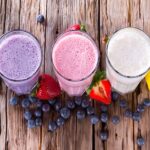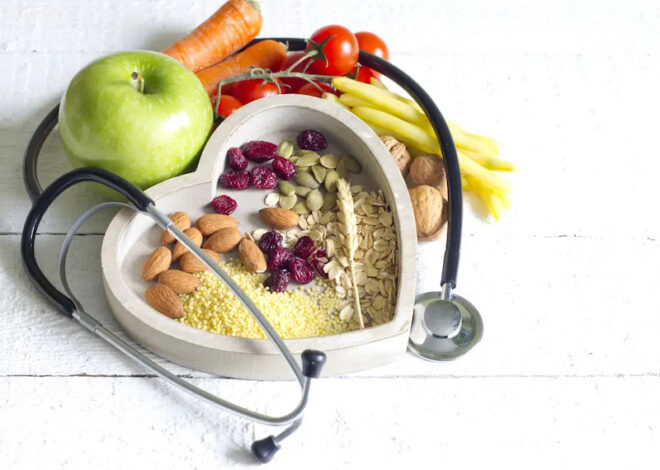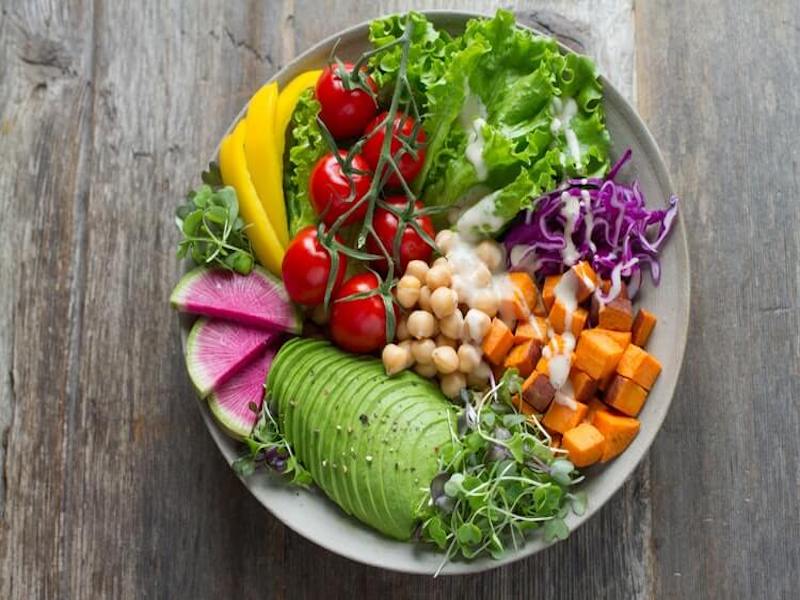
Vegan Diet: Benefits, notes, and reference menu
Vegan diet is a nutritional trend that is increasingly popular in the world. This regimen focuses on plant foods such as fruits, vegetables, whole grains, and nuts. Along with that, minimize or eliminate animal foods such as meat, fish, eggs, and milk from the menu. Let’s find out details with Evaworlds through the article below.
Concept and origin of the vegan diet
A vegan diet focuses on eliminating or minimizing the use of animal products. Here, the foods eliminated include meat, fish, poultry, eggs, and dairy products. Vegans often prefer to eat vegetables, seeds, grains, beans, and bean products like tofu.

The origins of the vegan diet date back a long time. It exists in many different cultures and religions. Buddhists, Hindus, and some other religions often practice a vegan diet as a way to practice and respect life. In recent years, vegan diets have become increasingly popular among advocates of environmental protection and the ethical treatment of animals.
See more:
- Quick weight loss diet plan – Tips and notes for beginners
- Fodmap diet: Solution for irritable bowel syndrome (IBS)
- What is the TLC Diet? Detailed 7-day menu suggestions and some important notes
Popular types of vegan diets
Here are some popular vegan diets:
- Vegan diet: Eliminate meat, fish, poultry, eggs and dairy products. Holistic vegetarians rely on plant food sources such as vegetables, grains, beans and legume products, seeds, oils and foods that do not contain animal ingredients.
- Lacto-ovo vegetarian diet: Includes drinking milk and eating eggs in the diet. However, meat and meat products will be eliminated.
- Lacto-vegetarian: Includes dairy in the diet, but eliminates meat and eggs.
- Pescatarian diet: Eliminates meat and poultry. However, fish, fish products, eggs and milk remain in the diet.
Each type of vegan diet has its own rules and benefits, depending on the person’s personal goals and feelings about health and ethics.
Benefits of a vegan diet
A vegan diet offers many important health and environmental benefits:
- Reduce the risk of cardiovascular disease, stroke, diabetes, and cancer
Eating lots of fruits, vegetables, nuts, and beans and eliminating or minimizing animal foods can reduce the risk of cardiovascular disease and stroke. stroke, diabetes, and cancer. These foods are rich in antioxidants, fiber and important nutrients, contributing to maintaining heart health, the immune system and reducing the growth of cancer cells.
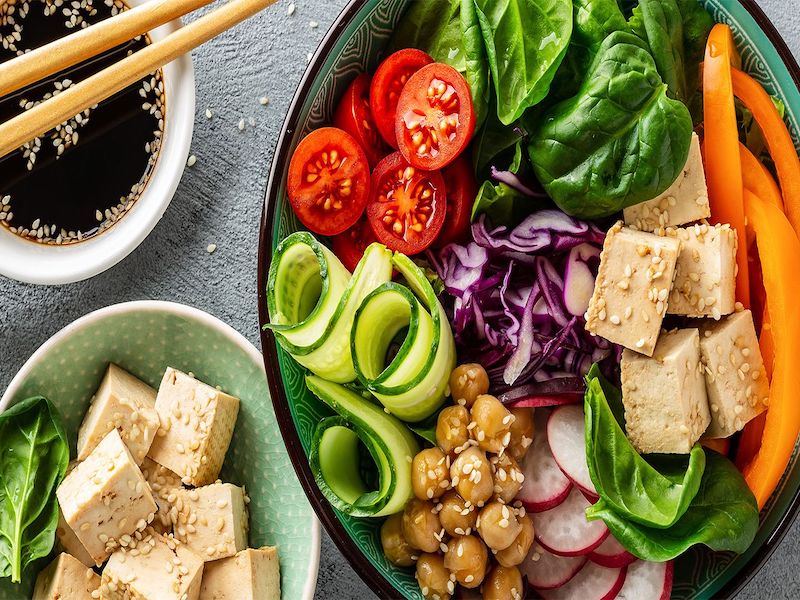
- Supports weight loss and healthy weight maintenance
Vegan diets are often lower in calories than traditional diets. At the same time, it also provides necessary nutrients. This helps people easily lose weight and maintain a stable weight.
- Good for digestive health
A vegan diet is rich in fiber from vegetables, fruits, and whole grains, which helps improve digestive function, enhance nutrient absorption, and reduce the risk of intestinal disease.
- Helps protect the environment and animals
By reducing the consumption of animal products, a vegan diet helps reduce factory emissions and saves water and resources. This positively contributes to environmental protection and minimizes negative impacts on animals.
A vegan diet is not only a healthy way to eat but also brings great benefits to both personal health and the surrounding environment.
See more:
- Mayo Clinic Diet: Benefits and buying guide full and detailed
- Weight loss diet and the best modes you should try
- Mediterranean diet cookbook you must read once
Note when applying a vegan diet
When adopting a vegan diet, there are some important notes for you to consider:
Risk of vitamin B12, iron, calcium, and omega-3 deficiencies
In some people, a vegan diet leads to deficiencies in important nutrients such as vitamin B12 from animal sources, iron, calcium, and omega-3. To solve this problem, you need to consider supplementing foods rich in these nutrients or using additional nutritional by-products.
Plan your meals properly to ensure adequate nutrition
Plan each meal specifically to ensure you are providing enough protein, healthy fats, vegetables, and whole grains. Then you can avoid nutritional deficiencies and maintain good health.
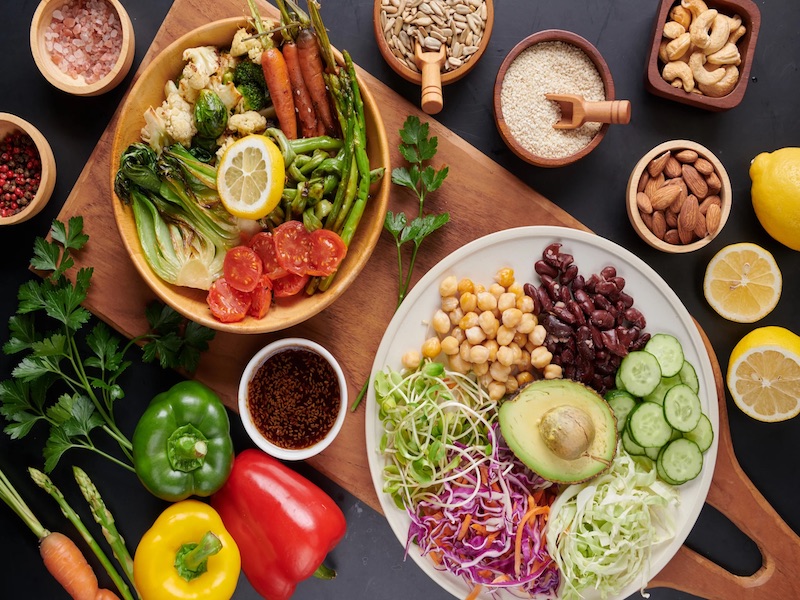
Supplement vitamins and minerals if necessary
If you do not get enough vitamins and minerals from your diet, you should consider using nutritional supplements. If you don’t know, consult your doctor or nutritionist to choose the right type.
Listen to your body and adjust your diet accordingly
Each person may have completely different nutritional needs. Therefore, you should listen to your body and observe its reactions after changing your diet. Adjust your diet based on your body’s feelings and development to ensure health and nutritional balance.
See more:
- The Mediterranean Diet Pyramid: The Secret to Health and Beauty
- The DASH Diet: Benefits, how to apply it effectively and safely
- A low carb diet: The secret to health and shape
Reference menu for a vegan diet
Below is a menu on a vegan diet that you can refer to:
- Breakfast: Whole-wheat bread with peanut butter and banana, oatmeal with yogurt and fruit, fruit smoothie.
- Lunch: Vegetable salad with lentils or tofu, vegetable soup, vegetable sandwich.
- Dinner: Vegetable curry, brown rice with braised tofu, stir-fried noodles with vegetables.
- Snack: Fruit, yogurt, nuts.
A vegan diet offers many health and environmental benefits. However, there are a few points to keep in mind to ensure a nutritious and suitable diet for you.
Conclusion
Thus, a vegan diet not only brings many health benefits such as reducing the risk of chronic diseases, improving the digestive system, and increasing energy, but also contributes to protecting the environment. However, when following this diet, you must balance nutrition and diversify foods to ensure nutrients. Follow Evaworlds to update new knowledge.



